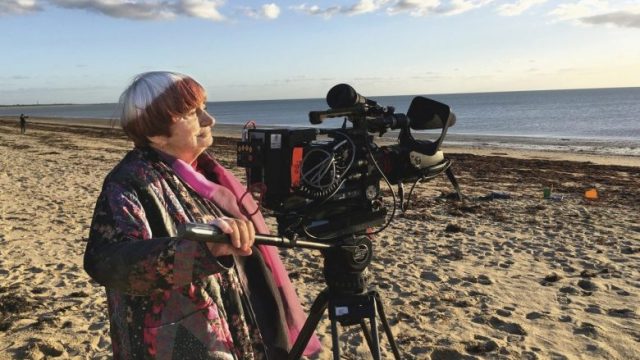Hi, my dears! Here is what I found as March became April…
On the 29th, Nicole Sperling talked about the impeding demise of Fox 2000 at Vanity Fair:
“Ang Lee credits Elizabeth Gabler and Fox 2000 for getting his Academy Award-winning 2012 film, Life of Pi, to the finish line. That little label, housed between the prestigious Fox Searchlight and the behemoth Twentieth Century Fox on the Fox lot, believed in his take on the circular, spiritual story about a boy and a tiger stranded in the middle of the ocean. Fox 2000 waited for him to finish his current film before tackling Pi; it let him travel to Taiwan to figure out the technical side of the filmmaking; and it allowed him the time he needed to work through adapting a complex novel for the screen.”
Also on the 29th, Caroline Siede at the AV Club discussed how 10 Things I Hate About You holds up after two decades:
“10 Things is structured like a relay race, with the four central characters and their various sidekicks gracefully passing the baton from scene to scene. The opening 10 minutes, in particular, are a masterclass in storytelling efficiency and economy. The film jumps from Kat to Cameron to Patrick to Bianca back to Kat, while also introducing oddball adults like guidance counselor/aspiring erotic novelist Ms. Perky (Allison Janney) and no-nonsense English teacher Mr. Morgan (Daryl Mitchell), who challenges Kat’s anti-patriarchal views by pointing out her privileged white feminism. Within just a handful of scenes, we’ve met all of our main characters, understand their relationships to one another, and grasp the larger dynamics of Padua High School.”
On the 2nd, Jude Dry rounded up the tributes paid to Agnes Varda made by female filmmakers for Indiewire:
“The film world lost a legend last week when Agnès Varda passed away at 90. The heartfelt outpouring of tributes from filmmakers, actors, and critics around the world says a lot about the legacy of the French New Wave icon who inspired so many. But she was most influential to a new generation of women filmmakers, a role she relished.”
Also on the 2nd, Scaachi Koul talked to Courtney Sodden about and her fame and analyzed the people and culture that made and mocked her for Buzzfeed:
“Now, at 24, Stodden — who was tabloid fodder before she was old enough to legally smoke, vote, or drink — is an almost-divorced, vaguely recognizable reality show professional who has burned through more money in a few years than most of us see in a lifetime. And she wants something else for herself: an identity and sense of self where she’s actually in control. After all, other women in the public eye who have been shamed or abused in years past are beginning to see reconsiderations of their legacies all over the place — and why shouldn’t she?”
Nathan Birch listed the ways we ruin entertainment for ourselves on Cracked on the 3rd:
“Just before the world wide web exploded in the mid ’90s, they used to talk about how we’d soon have an astonishing 500 channels on our televisions, and everyone joked about what an impossibly huge amount of content that would be. Today there are probably 100 times that many YouTube channels just recapping Game Of Thrones episodes. But humans aren’t known for their restraint, so our natural reaction to this absurd abundance of stuff to watch is to kind of ruin it for ourselves.”
Also on the 3rd, Christina Smith at Film School Rejects looked back on The Iron Giant:
“While it’s easy to frame this connection as a dichotomy between child and hero, there’s also something to be said of how the Giant embraces heroism through his own childlike sensibilities. Throughout the film, we see the Giant learning to speak and “Superman” is one of his first words. Additionally, when Hogarth introduces the Giant to the hero, he does so by using his comics as a ‘bedtime story.’ And of course, as the Giant and Hogarth engage in imaginative play, there’s an innocence and earnestness to his desire to perform as one of the ‘good guys.’ Dressing himself with a giant ‘S’ from a pile of scrap, the Giant puffs out his chest, strikes a pose, and proclaims: ‘I am Superman.’ Here, the film not only frames the bond between these two characters as one between child and hero but rather it depicts two lonely kids who bond over a shared love of a particular character, over a story that makes them feel less alone.”
Finally, on the 4th, Lois Beckett discussed the fight against racism in romance novels on The Guardian:
“The romance novel industry found itself facing a similar crisis over racism and representation as Hollywood, or the news industry, or the Democratic party. But one thing that sets it apart is that it is facing this challenge as an industry dominated by women – specifically, white women. Would anti-racist activism, and the backlash against it, play out differently in an industry run by women – and, in particular, by women who were writers and readers, who by definition loved stories of joy and reconciliation?”
Enjoy!

